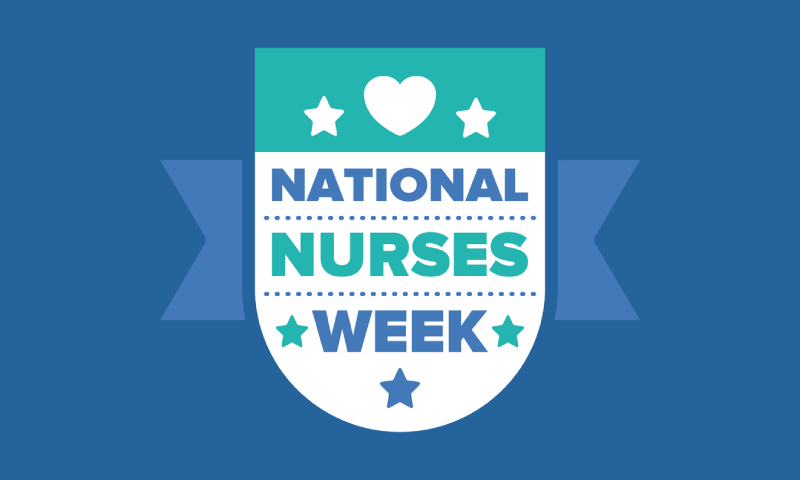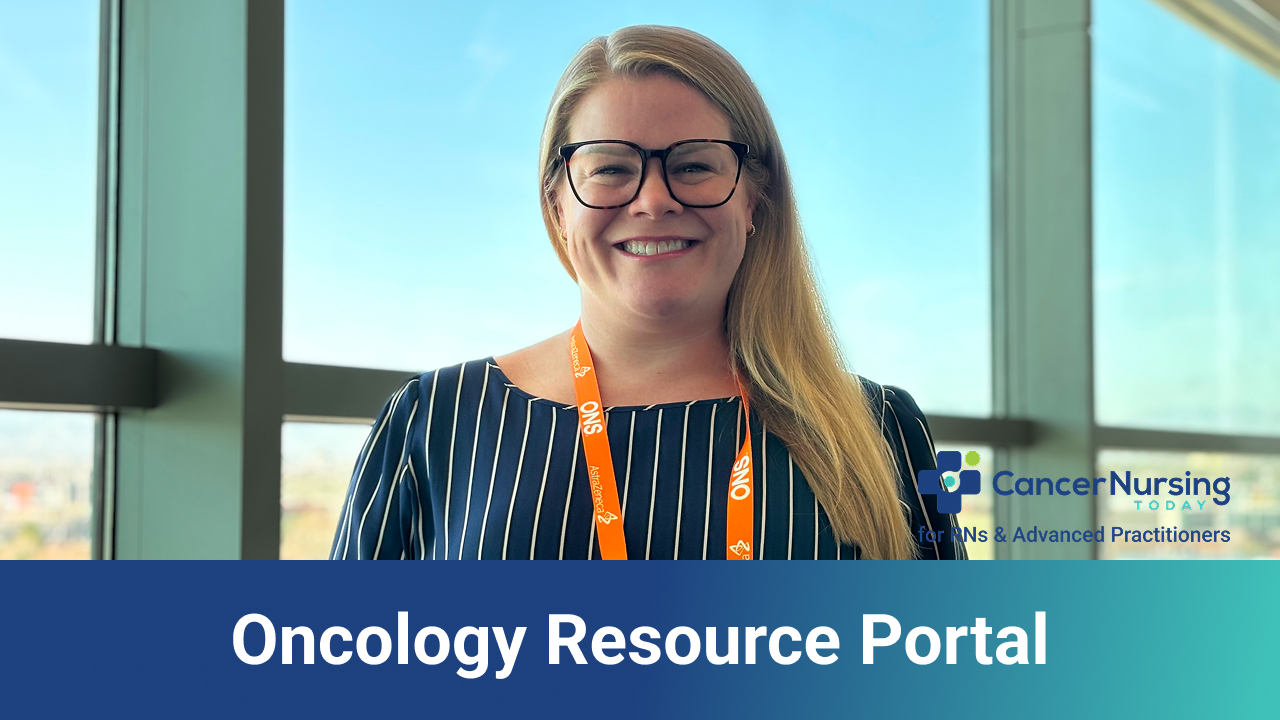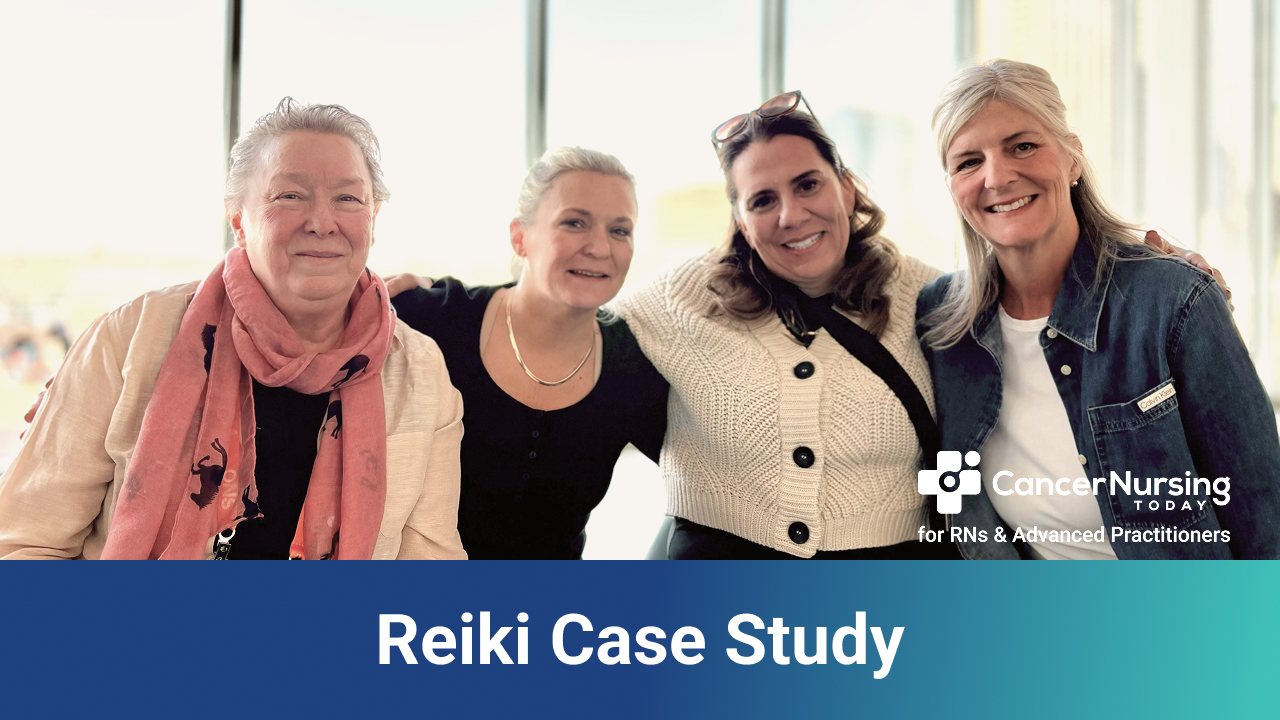Learn what oncology nurses should know about how it works, the FDA-approved products, legal considerations, and more.
Best Practices
Learn how nurses can implement best practices in patient care across a range of specialties.
Advertisement
This year's National Nurses Week, taking place May 6-12, is putting a spotlight on nurses as a "driving force" in healthcare.
Concerns about recurrence and the development of second primary breast cancers are particularly pressing in these patients.
Danielle Fournier, DNP, APRN, AGPCNP-BC, AOCNP, discusses her genomics session at the 50th Annual ONS Congress.
Veronica Brady, PhD, FNP-BC, BC-ADM, CDCES, FADCES, shares insights from her ONS Congress presentation on the topic.
Mayorga identified and evaluated incongruencies between documentation in clinical practice and fall-risk compliance.
Andrea Wagner McDonnell, MSN, RN, OCN, presented on the portal during the 50th Annual ONS Congress.
Melinda Mayorga, RN, BSN, OCN, shares insights from her research on fall prevention in outpatient cancer care.
Open-ended questions revealed that nurses prioritized improving their patients' sleep as a means of promoting their health.
It's critical for oncology nurses to ask patients certain questions about their morning and evening fatigue levels.
Learn how nurses can help patients understand what AR expression means for their disease and potential treatment options.
Trending
Studying for certification tests can be intimidating. Here are some essential tips to help you do your best.
These tips are important resources for oncology nurses who are recent graduates and experienced nurses new to this specialty.
With the shift in cancer care to the ambulatory care setting, a dedicated oncology nurse educator is a key asset to nurses.
Gastroparesis occurs in 60% of patients with advanced pancreatic cancer, and is frequently overlooked in upper GI tumors.
More unique, non-traditional jobs are emerging for oncology nurses to consider outside traditional positions.
Alkaline phosphatase may serve as a discriminating marker in detecting bone lesions in patients with multiple myeloma.





















 © 2025 Mashup Media, LLC, a Formedics Property. All Rights Reserved.
© 2025 Mashup Media, LLC, a Formedics Property. All Rights Reserved.